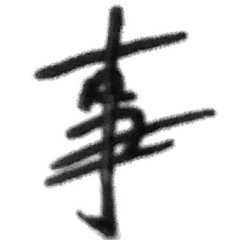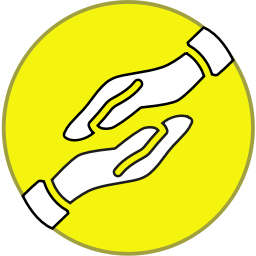All Activity
- Today
-
LinQiufeng started following dwq
- Yesterday
-

The 2025 aims and objectives
Woodford replied to Jan Finster's topic in General Study Advice and Discussion
It's almost March already, and I have yet to post on this year's thread! These days, my routine looks more or less like the following: 1. Keep my handwriting skills alive by continuing with my Pleco SRS deck for the HSK1-6 words (currently, it's about 12-20 cards a day, which takes about 5-10 minutes). Pleco gives me the pinyin and definition, and I write the characters. 2. Read for around 30 minutes 3. Listen to YouTube videos for 20-30 minutes. The YouTube algorithm gives me some fairly nice "自媒体“ content from people who talk about current events, their experience as immigrants to the West, career/life advice, etc. The content creators come from all over the world--Mainland China, Taiwan, Malaysia, Singapore, Canada, Japan, and the USA. One of my favorite channels is 安争鸣,where a woman hosts a show called 读书时间 and comments (in fairly clear, unadorned language) about what books she's been reading. She's been able to garner tens of thousands of views on each video, and the YouTube income, while not great, has been able to sustain her living expenses in a third-tier Chinese city. Interesting. Another channel I really like (but isn't as useful for language study) is "Handy Geng," where a very skilled man builds extremely silly and impractical machines for entertainment value (like a rideable llama robot that cooks sausages and shoots them out of its arms). 4. Do translation exercises with ChatGPT. This is one of the most promising avenues for practice, I think. Until now, input has been easy, but practicing output has always required hiring a human being (which is indeed better than ChatGPT, but less accessible). I ask ChatGPT to give me a set of English sentences with a certain topic (driving a car, household chores, visiting a friend's house, going to the hospital, shopping, cooking meals), and I try translating them into Chinese. Then it tells me what I got wrong, how to improve my style, better words I could have used, etc. Though it doesn't happen often at this stage, I feel so validated when it tells me, "Your translation is perfect--nothing to change here!" But I usually do something wrong or suboptimal in my translations. There's a lot of room for improvement here, which is actually exciting. My reading and listening skills are at more of a plateau, but here is where I can feel the thrill of improvement again (and yes, even after just a week of writing in Chinese, I've already begun improving). And practicing writing actually transforms the way I approach reading. Sometimes I practice writing a certain phrase, and then I encounter it in a book, and it helps reinforce the concept (hey, that's the same kind of construction that I just practiced writing myself!). -
These days, I'm able to read more aimlessly and recreationally. I reached a milestone of 50 books finished some time ago, but now I don't count anymore. I read whatever I feel like. At one point, I bought issues of 3 different Chinese magazines and read through them, which was pretty fun. In the past, I've (mostly) only read books originally written in Chinese. But now I don't really care. In fact, if there's an English book I want to read, I can just read the Chinese translation in order to kill two birds with one stone--I can read a book I'm interested in, and I can practice my Chinese at the same time. Maybe there's a difference in style between "native" books and translated books, but not to the extent that reading translations can't benefit my Chinese skills. Right now, I'm reading Yu Hua's 兄弟. As some on this site have noted, it can be shockingly coarse at times. It seems as though Yu Hua made a bet with a friend as to how many times he can use the word 屁股 in a single book. I almost put the book down, but the plot and characters are interesting enough to keep me going. I find myself caring about the plight of the characters, and curious about what happens next. Yu Hua is relentlessly dark in his outlook, though, so I'm not optimistic. There's no worse fate than to be a character in an Yu Hua novel.
-
I create a chinese language learning website!
chongjasmine posted a topic in Resources for Studying Chinese
I created a Chinese language learning website. It is Christian focused. It currently has two lessons and 1 free chinese reader. I will update 1 lesson every week. Do visit it: https://howtostudymandarin.42web.io. Thanks. -
I feel like I've finally found a good way of maintaining balance with reading English books and Chinese books. I have a new rule for myself which is I read one book of each language at the same time, but only one can be "long". I found that the areas where I went through a drought previously were if I reached a bit of a slog in both languages, and hopefully having something fresh to read most of the time, will reduce the number of days where I don't read anything at all. If anyone has any recommendations I'm happy to take more suggestions of shorter books (<100k chars) Since the start of the year, I finished the long web novel 《紫川》(~2.5m chars) and a shorter work of wuxia by 龙乘风 who is considered a 古龙 imitator while also reading 6 books in English. I really enjoyed the ending of 紫川, even though there were a lot of threads introduced that were never wrapped up and I definitely want to read another long Chinese story at some point in the future. I was not a fan of the other book, 雪刀浪子. It was originally published in a magazine, and while I have read other works that were published periodically, this managed to capture all the worst elements such as there being 180 degree twists every few pages and random characters being introduced and being told that they're important when I knew they wouldn't be.
-
Hi Mark, I want to download the subtitles for 漫长的季节, but I couldn't find them on Google Drive and your site seems to be down. Would you mind sharing them?
-

How do I read these characters in Chinese?
cncorrect replied to Mall Food 5830's topic in Vocabulary, idioms, word lists . . .
This text is in Japanese. Despite their shared use of Chinese characters and cultural connections, the Chinese and Japanese languages vary considerably in pronunciation systems, grammar rules and culture practices. Here's an interesting fact about Japanese writing. The rounded hiragana derived from Chinese cursive handwriting (草书) and the angular katakana was created using selected components of Chinese characters (偏旁部首). You'll find a detailed chart illustrating this evolution in an article: https://zhuanlan.zhihu.com/p/109531152. - Last week
-

Chinese Grammar Bank
Tomsima replied to zhouhaochen's topic in Grammar, Sentence Structures and Patterns
Looks very good. What is the connection between 'Flexi Classes' and 'LTL', I see they use the same branding, is it the same company? -
Why am I advanced for some content, but basically a beginner for others?
Jan Finster replied to 黄有光's topic in Speaking and Listening Skills
https://m.youtube.com/watch?v=mI9yra13a8Q https://m.youtube.com/watch?v=wr0z87kY4HA https://m.youtube.com/watch?v=zAqOHVQebL0 https://www.youtube.com/live/_ArgAq9KbAE?si=dGWwsryq8cFMxnql -
So we created a Chinese Grammar Bank from complete beginner to HSK 5 level. I think HSK 4 and 5 need some more points though. Any suggestions for additional points that should be covered, especially at the higher levels (but lower levels too if there are suggestions)? How to improve structure and content?
- 1 reply
-
- 1
-

-

How do I read these characters in Chinese?
calculatrix replied to Mall Food 5830's topic in Vocabulary, idioms, word lists . . .
Here the Japanese transcript: 妹は 私 の友達五人と一緒に日本食 レストランで寿司 とアイスクリームを食べました。 Now Google can translate it for you 😉 -

LTL Mandarin School Taiwan (Taibei)
zhouhaochen replied to zhouhaochen's topic in Studying Chinese outside of China
Thanks so much for the feedback As we have three quite new Chinese Forums accounts on this thread commenting on LTL Taipei in a relatively short time and we live in in the times of Bots and AIs, I wanted to provide some quick feedback, just in case anyone was wondering if these are real people. They are! All three are very real Chinese language students (but not yet long term Chinese forums users). Cathy 😄 Cathy studied with LTL in Taipei twice, once in 2023 for three months and then she came back to LTL Taipei in December 2024 for another one month program. She studied both times in small groups. Lorine: Lorine is a current student at LTL Taipei studying 1on1 classes. Sulalalala: Just finished an LTL Taipei program and was studying in a small group & individual program in Taipei. Their opinions about their programs are written above. -
Why am I advanced for some content, but basically a beginner for others?
pinion replied to 黄有光's topic in Speaking and Listening Skills
For discussion of recent-ish news that's relatively clear and enunciated while still being normal people talking, I like 新聞酸菜館 (mainland) and 全球串連早安新聞 (Taiwan). -
Why am I advanced for some content, but basically a beginner for others?
Moshen replied to 黄有光's topic in Speaking and Listening Skills
黄有光, Anything where you have both the oral and the written text should help. Listen first, then listen with the written text in front of you, then listen more slowly, stopping the audio when needed, then go back and listen to the audio without the written text. Repeat until you can understand without reading. -

How do I read these characters in Chinese?
Lu replied to Mall Food 5830's topic in Vocabulary, idioms, word lists . . .
That's because the text in in Japanese. Japanese uses some Chinese characters (that they call kanji), and in addition two other alphabets (hiragana and katakana). If you know Chinese, you can read the kanji in a Japanese text and from that, you can usually tell the subject (something about a younger sister and food, in this case: I spot 妹 'younger sister', 日本食 'Japanese food', 壽司 'sushi' and another 食), but you won't understand what they're actually saying about that subject, because you can't read the kana. -
How do I read these characters in Chinese?
Mall Food 5830 posted a topic in Vocabulary, idioms, word lists . . .
I can read some of the Chinese characters in Pinyin, but not all of them. Hanzi: 妹 (?) 私 (?) 友達五人 (?) 一緒 (?) 日本食 (?) (?)ト (?) (?) (?) 寿 司 (?) (?) (?) (?) (?) (?) ー (?) (?) 食 (?) (?) (?) (?)。 Pinyin: Mèi (?) sī (?) yǒu dá wǔ rén (?) yī xù (?) rì běn shí (?) (?) bo (?) (?) (?) shòu sī (?) (?) (?) (?) (?) (?) yī (?) (?) shí (?) (?) (?) (?). What about the rest? How do I read the remaining in Pinyin? -
Why am I advanced for some content, but basically a beginner for others?
黄有光 replied to 黄有光's topic in Speaking and Listening Skills
I tried to watch an episode of 父母愛情, but that, too, was too advanced for me in terms of listening comprehension. I already have difficulty parsing clearly pronounced speech---the casually, and VERY rapidly pronounced speech in the first ~10 minutes of the first episode is too much, especially with all the background noise. Does anyone have any podcasts they could recommend me that would be help me expand my listening comprehension beyond clearly-enunciated newscaster speech? I think I desperately need practice listening to Chinese as it is spoken by everyday people. I am particularly interested in geopolitics, cooking, history, and science, if that helps. -
-Copy.thumb.jpg.f20384426323f99fcc6abc1d01960078.jpg)
How I learned 4,000+ characters or Tuttle/Matthews “Learning Chinese Characters – Part 2”
mac n cheese replied to HSK Pro's topic in Resources for Studying Chinese
Yearly check-in. What a great travesty that HSK Pro is still disappeared :(, and when the world needed him most. His near vanquishing of the Chinese Character Problem once and for all shall be told in legends and lamented by future generations. @Matthias That sounds cool. Ya the way I learned the Matthews characters was by reading the book then using this simple Anki deck here: https://ankiweb.net/shared/info/128251318 it just has the character, pinyin, definition/keyword, number, and chapter for each entry in Matthews. I'm not super familiar with the Marilyn Method, but I'll check it out. I think Mandarin Blueprint's Hanzi Movie Method is based on it. @dawidpacha Honestly, ya I'd be interested in working on a community project like that. Do you have discord? my handle is @pannakooko PS: @Matthias I went ahead and checked out your website and wrote out my lengthy thoughts and rambles below: On the Home page it's got the paragraph about 'shao2' as spoon, and it seems like one of the buttons 'find out how' or 'visit the first comic' would take me to learning that character, but that's not what happens. When I click on 'visit the first comic' it takes me to a page that doesn't seem connected to learning 'shao'. It happens to have 'shao' as one of the many words listed at the bottom, but there's a break in the narrative from 'you too can learn shao!' to it really just being a side note on the next page. An idea to help this is to have a dedicated page for that first button that says something like 'in order to learn shao, we need to learn the components of the character first' (might even put the demonstration right on the homepage). As for introducing the system, I think you did good to jump right into it instead of explaining the whole system before hand. When you give the characters for 'Julian' though, it looks like the 1st character has the 'zhu' dot in it, right? If so, it would be helpful to mention that, that the pronounciation of 'zhu' is important in the name, otherwise the fact feels like it's just extra information. For reviewing, it's not clear to me how to review; I couldn't find that feature on the website. I created an account, but it wasn't clear to me how characters or sentences get added to my reviews. For the review system, I know you said it uses SRS, but are you familiar with Anki's newer FSRS system that uses machine learning for scheduling? The old system still works great, don't get me wrong, I used it to learn thousands of words, but the new system is worth at least looking into. The fact that you have integrated the Manga and movie into the website is awesome. I agree seeing things in context is essential learning. Having a visual novel like that is a great way to facilitate that. Whenever viewing the individual panels for the manga pages, it would be handy to have a button to take you back to the whole page. I would want to go back and see it after seeing each sentence to quiz myself. It's not strictly necessary, but would be handy. Overall this looks like a super useful site. It seems the two major ingredients are 1) you already created 3,400 stories, a lot of them with pictures too, and 2) you've integrated them into a website that helps you learn through exposure. It seems to me what mandarinbanana is accomplishing is to have an 'exposure' resource with the stories already integrated, which is great. The reason why I liked the Matthews method was because they had a pretty simple story system, and they already did the leg work to make up all the stories. The Marilyn method is more complicated, but probably not any less effective. Since you already created all the stories, it now seems like a plausible alternative for people like me who liked Matthews method but struggle to come up with their own stories (though my preference is for the Matthews system). I know that it's a skill so you get better at with practice, but part of the problem is that creating a story is another effort barrier for learning (even if you learn your own stories better). Personally, I really appreciated the list of words with their stories that Matthews has, where they put them in a logical order and split the list into groups (the chapters). If the comics could be browsed in the order you put them in, but with the format for the "Characters with _ as component", where it does show all the information, and not just the picture, that would be helpful, especially with a basic accompanying anki deck like for the Matthews book. Feature wishlist - I understand it's easy for me to ask, while these requests would probably mean tons of hard work for you to actually implement, so no pressure: - ordered word list, with chapters??? - simple anki deck? - audio for each word - subtitles on screen for movie - review manga page I don't think any of those are necessary, but they would be nice tidbits some day. There may be other features you could take 'inspiration' (>.>) from in similar reading exposure apps, like DuShu or Du Chinese, though I'd imagine you've already seen them and done that. Obviously, this is all just one internet strangers opinion, so don't give it tooo much weight. Ich hoffe, dass meine Meinung dir hilfreich wird. Danke fuer deine Arbeit! -
How much study time per week to go beyond treading water
Moshen replied to Jan Finster's topic in General Study Advice and Discussion
Many years ago George Leonard published a small book called Mastery. It is a classic, and you can still find it : https://www.amazon.com/Mastery-Keys-Success-Long-Term-Fulfillment/dp/0452267560/ He talks a lot about the dynamics of "the plateau" stage of mastery of any skill, where you do not feel you are making progress, and then suddenly you slip onto a different plane of ability. I strongly recommend this book because it might change your attitude from "treading water," which is a pretty useless activity unless it is saving your life, to "making progress even if you can't see it yet." After all, you didn't say you were getting worse. And by the way, the process has little to do with exactly how much time you spend on an activity. -

How much study time per week to go beyond treading water
anonymoose replied to Jan Finster's topic in General Study Advice and Discussion
I think this is too personal for someone who doesn't know you to give you a good answer. It depends on so many factors. For example, how exactly are you spending your 30-60 minutes per day? How good was your Chinese before? The more you know, the more there is to forget (especially vocabulary). Also, unless you are in China, you should have realistic expectations. I lived in China for 10 years and reached an advanced level. I have now been learning Japanese (albeit not intensively) for a couple of years, and my progress is significantly slower than it was for Chinese, mainly because I am just not in an environment conducive to learning Japanese. -

How much study time per week to go beyond treading water
becky82 replied to Jan Finster's topic in General Study Advice and Discussion
I feel I don't notice any change without putting in 100+ hours of study in a particular area. I'll improve, but not noticeably. But if I took one of my weaknesses (like listening) and did that for 100 hours, I'd expect to notice a small improvement. -

How much study time per week to go beyond treading water
Tomsima replied to Jan Finster's topic in General Study Advice and Discussion
Putting in 30-60 mins a day should see you making steady progress for sure, I think treading water would be doing a bit of Chinese 2-3 times a week and that's it. If you are not in China itss a lot more difficult to feel the progress, but you'll notice it when you do go next. Bear in mind that if you've put in 20-30+ study hour weeks previously, you're way past the big leaps of growth and are now chipping away at the last 10% year by year, so the incremental steps are small enough that it feels like treading water. Set a goal for yourself to mimic the feeling of achievement that studying may once have given and your motivation will come back. I've been doing about an hour of study a day for the last year or so and believe it or not it feels like I am actually getting worse in my abilities! -
How much study time per week to go beyond treading water
Jan Finster posted a topic in General Study Advice and Discussion
I have been studying Chinese since just before COVID hit. There have been phases of intense studying (30 hours plus per week) and extended study-free periods. Currently I can at most put around 30-60 minutes per day into Chinese due to other obligations and I feel like treading water. At best I maintain my level in a certain area (eg listening OR reading OR speaking) but not in all areas at the same time. Definitely I am currently not really improving noticibly. I wonder how many hours per week you think you need to invest for obvious progress. Parts of me think unless you can put in 20+ hours every week, you are not getting any further. Ideas? Thoughts? -
Why am I advanced for some content, but basically a beginner for others?
Flickserve replied to 黄有光's topic in Speaking and Listening Skills
I have noticed this as well. -
Why am I advanced for some content, but basically a beginner for others?
黄有光 replied to 黄有光's topic in Speaking and Listening Skills
@Moshen The reason is because one of my big problems lies not in understanding the words themselves, but in parsing speech. In other words, I may hear a sentence composed entirely of vocabulary that I in theory am very familiar with, but still hear the sentence only as garbled noise. I figured it would be best to work on curing this problem with carefully enunciated speech first, then move on to speech that is spoken e.g. in non-standard accents, or with sloppy pronunciation, etc. But you're absolutely right that the vocabulary used in a news broadcast is going to differ pretty drastically from the vocabulary in, like, a wuxia audiobook. -
I'm not sure we do know that, just that most of the surviving record has people speaking in that way, but whether that's how folk chatted in the market and sat on the kang we can't really say, but I'd expect it to be informal. Then we have some surviving texts, such as the Zhuangzi likely composed even earlier, that have some quite colloquial exchanges. Micheal Loewe's Bing: From Farmer's Son to Magistrate in Han China is a fictionalised account of one man's rise through the social ranks, worth checking out. Loewe is a noted scholar of the period and he imagines some fairly lively conversations between his imagined everyman and the people he meets along the way. Review here (PDF): https://www.asianstudies.org/wp-content/uploads/bing-from-farmers-son-to-magistrate-in-han-china.pdf


